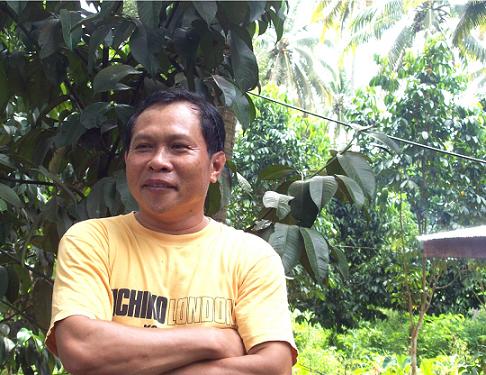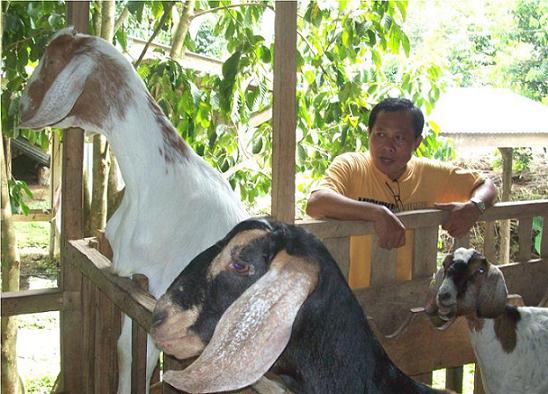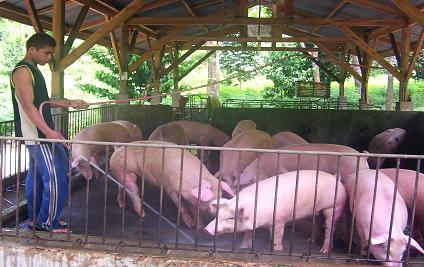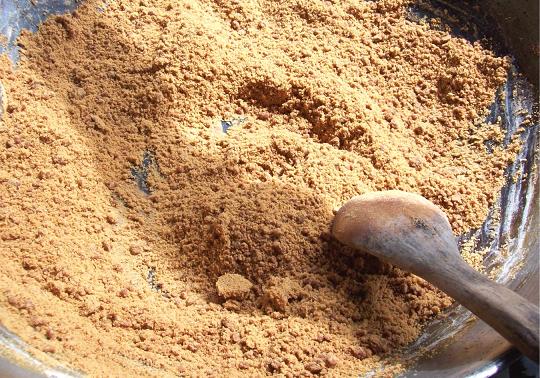Ned Deloach on Natural Selection and Marine Invertebrates Gone Wild
Pangaea Expedition from The Andaman Islands to Calcutta for Conservation
Tay Lai Hock on Ground-up Initiative for Sustainable Living in Singapore
Lord Oxburgh on The Science and Politics of Climate Change
Khandro Thrinlay Chodon, Lay Master of Buddhism, Inspires Spiritual Retreat in Amanjiwo, near Borobodur
Gary Bencheghib of "Make a Change Bali": Beach Clean-ups Through Personal Conviction, Environmental Responsibility
Olly Steeds of Discovery Channel's Solving History Documentary Series on Conservation and Relevance of History
Captain Shane Granger on the Historical Vega Bringing Humanitarian Aid to Isolated Islanders
Hitesh Mehta on Ecolodge Principles and His New Book "Authentic Ecolodges"
President Jose Ramos-Horta on A Sustainable Future for Timor Leste
Hanne Darbol of Gangga Island Resort on Conservation and Restoration to Improve Villagers' Lives
Dr Saleemul Huq on Bangladesh as Climate Change Adaptation Model
Mike Horn: Extreme Explorer on Conservation Aboard The Pangaea Eco Yacht
Michael Switow on Fighting Poverty and its Impact on Climate Change
Benjamin Lao on Organic Pesticides and Using Sloping Agriculture Land Technology to Counter Soil Erosion
Davao, 17 September 2009. His work as a government employee didn't stop Benjamin R. Lao from pursuing his first love, which is farming. In fact, he plans to retire early to concentrate on his farm in Eman, a barangay of Bansalan, Davao del Sur.

Davao's outstanding farmer, Benjamin Lao.
"My first love is farming," the Gawad Saka 2008 national awardee for coconut farming told the press corps of the Department of Agriculture Region VI. After all, his parents were both farmers and he grew up in a surrounding where people were planting rice, corn, and several other crops.
The Lao family owns about 40 hectares of land. In 1998, his mother divided the land equally among the eight children. "I am the fifth but I was unanimously chosen to assign which portion of the land should be given to each sibling," he said.
For some unknown reason, he selected the land that was so infertile that cogon grass would not even grow on it. (Aside from the five hectares he inherited from his parents, he also purchased another five hectares, which is just near his farm.)
Using Sloping Agriculture Land Technology on Barren Land
To transform the barren land into an agricultural haven, Lao started reading agricultural magazines and other publications. He also attended trainings conducted by government agencies like Department of Agriculture, Philippine Coconut Authority, and Department of Science and Technology. "I have to learn all the basics," he said.
Since the Mindanao Baptist Rural Life Center (MBRLC) is just located in an adjacent barangay, Lao decided to visit the place. "I was impressed by the way they conserve the soil and the farming systems they have developed through the years," he said.

Goat manure fertilizes his nitrogen-fixing bacteria plants.
He immediately attended some of the training the MBRLC carried out and tried to adopt the techniques in his own farm. Since he was already a government employee at that time, he had to travel about two hours from Davao City to his farm during weekends just to supervise the innovations he had learned.

Goats and pigs provide an income stream for the farm.
The first he developed was the hilly portion. "I had to protect the soil from erosion," he said. With the knowledge he gained from the MBRLC through the Sloping Agricultural Land Technology (SALT), a soil conservation technique, he planted the area with various nitrogen-fixing hedgerows like Flemingia macrophylla, Desmodium rensonii, and Indigofera anil, which are good sources of fertilizer since these are legumes. Later on, he planted them all over his farm.
Today, he uses the hedgerows as additional feed for his goats. "Legumes contain as high as 16% crude protein and therefore provides good nourishment for my goats," he bared.
Organic Farming
Since Lao wanted to practice the principle of organic farming, he thought of adding goats.
In the beginning, he had only seven goats and the animal manure was used as organic fertilizer. But he found out there was money in goats, so he opted to increase the number. Today, he has about 170 goats in his farm. "Buyers just come to my farm and select the goats they want to buy," he said.
Goats are also good sources of milk. The milk he gets from the goats are used as an ingredient for their homemade Donna Belle durian ice cream. The extra milk are sold either as ice candy or as fresh milk at the market outlet in the town proper, about ten kilometers away from the farm.
Lao also raises pigs in his farm – about 32 heads. "They are good source of income for my family," he said. He uses the manure as source of methane gas and organic fertilizer. "We save money since we are no longer buying LPG and firewood to cook our food and products."

Sugar from coconut has a low glycemic index.
When he inherited the five-hectare farm, there were already coconut trees growing. Every three months, he harvests 400-600 coconuts. But several months after he planted the nitrogen-fixing legumes, the coconut yield markedly increased to 15,000 nuts per quarter.
Aside from the revenue he gets from copra, he also ventures into a value-adding enterprise right in his farm by producing coconut sugar and coconut honey out of the coconut sap or toddy gathered from his coconut trees. "These coco products have low glycemic index, a measurement of blood sugar, thus good for diabetics and those having prostate problems," he said. "It has also glumatic acid, the same ingredient present in Viagra."
Currently, he is selling his coco products at the town outlet, in the cities of Digos, General Santos, Butuan, and Metro Manila. "Demands for our products are continuously increasing," he said.
Zero chemical pesticides
On value adding, Lao pointed out, "(It) is an important component in a farming system. For instance, if you have goats, you must know how to produce fresh milk and having other saleable products from the animals. In the case of coconut, don't think only of copra because when it is cheaper, you can always have another product to sell."
Aside from coconut, the farm is also teeming with various fruits like lanzones (more than a thousand trees), durian (700 trees), mangosteen, and rambutan. "I bought them one at a time from my salary as a government employee," he said.
In his farm, you won't see his farm workers using chemical pesticides. "I had a tragic experience with chemical pesticides when I was still a teenager while cultivating rice in our farm located at the neighbouring barangay," he revealed.
Instead, he recommends using Eman, which stands for "epektibo, mura, at natural" (effective, cheap, and natural). "This is a concoction composed of fresh goats' manure, kakawate, makabuhay, and hot pepper," he informed. "These are soaked together for 48 hours and after that the mixture is ready for application."
According to him, the mixture is effective in repelling plant pests and diseases. In addition, it is also a good course of foliar fertilizer. "We are committed to help preserve our environment. We want to teach Filipino farmers the right way of farming through natural method and that is by not using commercial fertilizer or pesticides," he said.
To people who have been to his farm, they have described it as a haven. You don't see only livestock and crops but ornamentals as well. "It's nice to see beautiful flowers underneath the trees," he explained. "Also, the flowers serve as breeding areas for beneficial insects like spiders and dragonflies."
Davao's Outstanding Farmer
In 2005, Lao was chosen as the most outstanding farmer of Davao del Sur. The following year, he was recognized by the Philippine Council for Agriculture, Forestry and Natural Resources Research and Development as a Magsasakang Siyentista (scientific farmer). Last year, the Department of Agriculture bestowed the honor as one of the country's outstanding farmers. "It was far beyond my expectation," he said of the recent award he received.
Visit Benjamin R Lao's website here or contact him.

Apart from vegetables and trees that earn him money from the prouce, Lao also plants ornamentals to cultivate butterflies and spiders which he considers beneficial to his farm.






